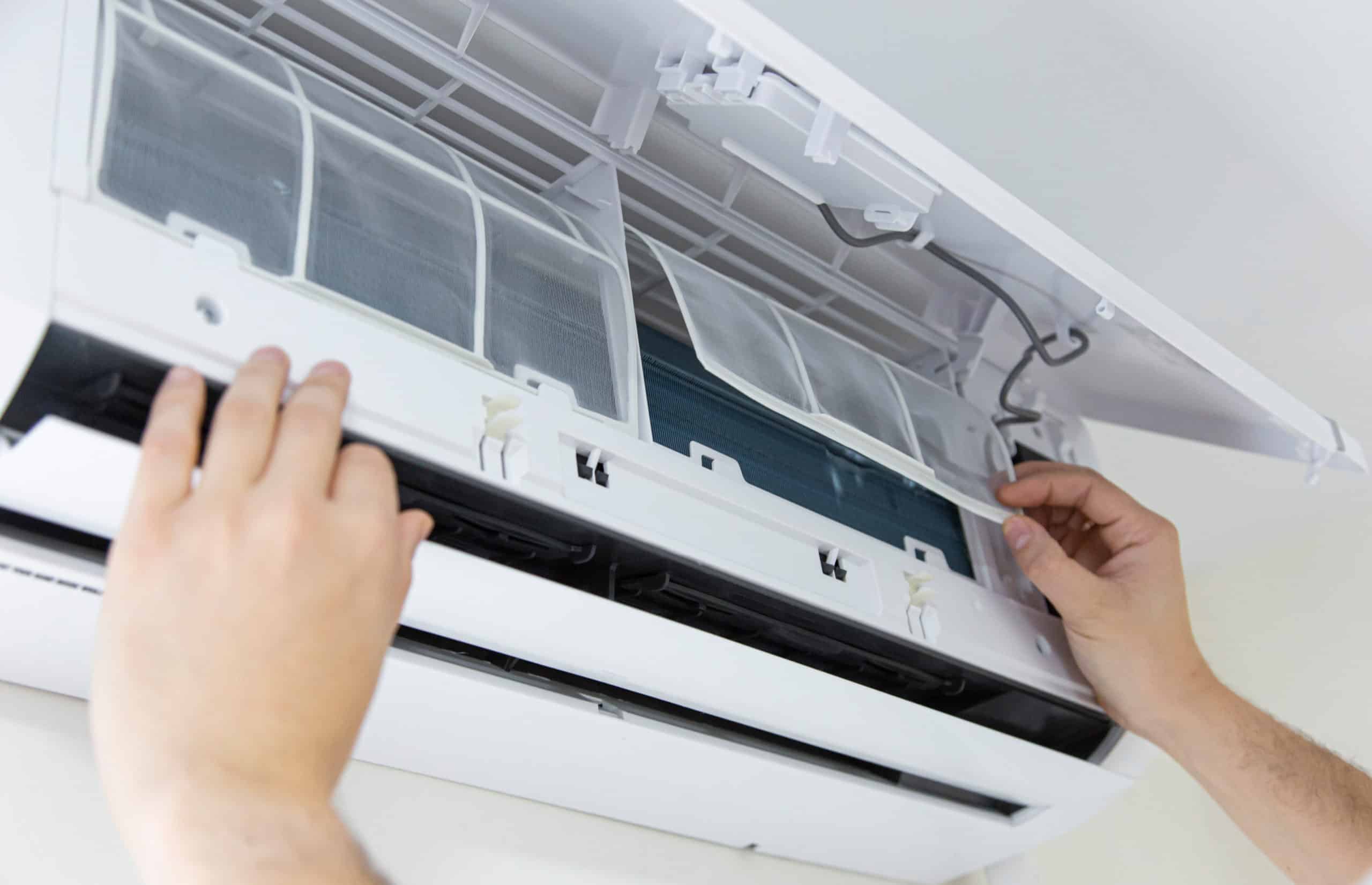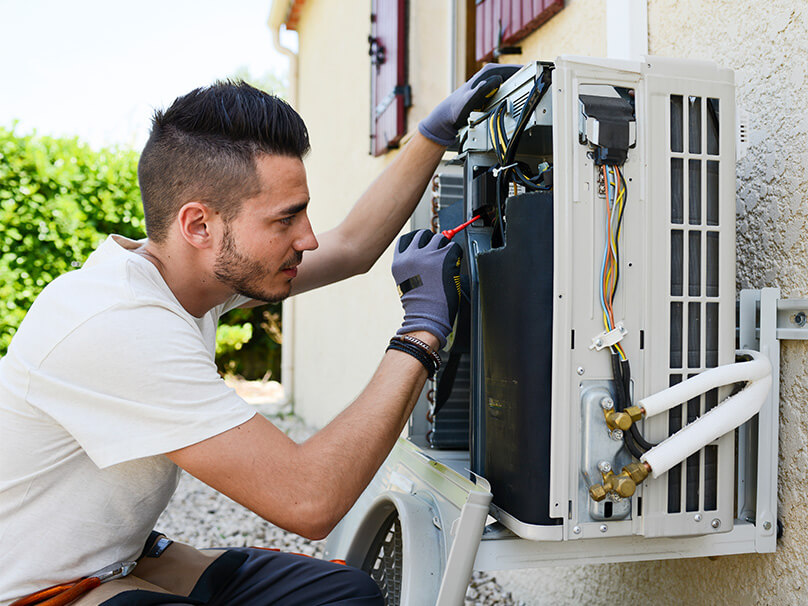Getting My Ac Repair Near Me To Work
Getting My Ac Repair Near Me To Work
Blog Article
Top Guidelines Of Air Conditioning Repair Near Me
Air conditioning Repair Near Me: Expert Cooling System Remediation Ensures Your Home Stays Comfy All Year Round
Types of Air Conditioning Systems
When dealing with air conditioning repair, understanding the type of air conditioning system you're dealing with can conserve time, cash, and stress. Ever questioned why some systems cool a space much faster than others? Or why particular systems appear to break down more frequently? Let's peel back the layers.
Central Air Conditioning
Things about Ac Air Conditioner Repair
Envision a cool breeze streaming through an entire home, whispering comfort into every corner. Central air conditioning systems do precisely that. They use a network of ducts to disperse cooled air, counting on a compressor and condenser outside, coupled with an evaporator coil inside. However when this complex beast falters, determining the problem can be like finding a needle in a haystack.
Split Systems

Split systems are a popular option for numerous homes-- part indoor unit, part outdoor compressor. They use versatility and performance, but their dual nature suggests repair work can involve either element. Have you ever heard a weird noise outside your house just to find the indoor system isn't cooling? That's a timeless indication of a split system glitch.
Some Known Facts About Air Conditioning Repair.
Window Units
These compact warriors battle summer heat by fitting snugly into a window frame. They integrate all parts into a single box. Their simplicity typically indicates fewer repair headaches, however neglecting filters or enabling particles buildup can result in reduced efficiency or breakdowns.
Ductless Mini-Splits
The Ac Repair Ideas
Ductless systems bypass ductwork entirely, making them perfect for homes without existing ventilation. They're quiet, efficient, and remarkably durable. When repairs are required, service technicians must be adept at handling refrigerant lines and electrical connections-- no little feat.
Quick Reference Table
| Type | Secret Includes | Typical Repair Work Issues |
|---|---|---|
| Central air conditioning | Ductwork, whole-house cooling | Duct leaks, compressor failure |
| Split System | Indoor & & outdoor units | Refrigerant leaks, fan motor concerns |
| Window Unit | All-in-one, easy setup | Dirty filters, electrical faults |
| Ductless Mini-Split | No ducts, zoned cooling | Line leaks, sensing unit breakdowns |
How Repair Air Conditioner Near Me can Save You Time, Stress, and Money.
Deciphering the Most Frequent AC Problems
Have you ever wondered why your air conditioning system suddenly stops cooling during a sweltering afternoon? One common perpetrator is an unclean or stopped up air filter. This sneaky villain limits air flow, forcing your system to work overtime, which not only reduces efficiency but can also cause early breakdowns. Think of trying to breathe through a headscarf taken in dust-- it's exhausting!
Another regular hiccup is refrigerant leakages. These unnoticeable leakages do not simply reduce cooling power however can also damage the compressor, the heart of your air conditioner system. How typically do you look for uncommon hissing sounds or ice formation on the coils? Catching these signs early can conserve you from pricey repairs down the line.
Beyond the Basics: Lesser-Known Issues
The Best Guide To Air Conditioning Repair
Often, the thermostat itself is the nuisance. Miscalibrated or defective thermostats send out blended signals, triggering the air conditioner to cycle erratically. Ever experienced your AC turning on and off in rapid succession? That's called short biking, a sneaky efficiency drainer that can break components much faster than you 'd expect.
Electrical problems, such as used electrical wiring or a malfunctioning capacitor, might lurk below the surface area. Air conditioning Repair Near Me. These often manifest as air conditioning units failing to start or unexpectedly closing down. A professional eye understands to evaluate these parts with precision tools, something a casual look will not expose
Specialist Tips for Diagnosing Common Air Conditioner Concerns
An Unbiased View of Ac Repair
- Check and replace air filters frequently-- every 1 to 3 months depending on usage and environment.
- Listen for uncommon sounds like rattling or buzzing that could signal loose parts or electrical faults.
- Examine the outdoor system for debris or clogs that hamper airflow and cause overheating.
- Search for frost accumulation on evaporator coils, a tip towards refrigerant problems or airflow restrictions.
- Check the thermostat settings and recalibrate if the temperature readings feel off.
Quick Referral Table: Symptoms & & Probable Triggers

| Symptom | Probable Cause | Specialist Pointer |
|---|---|---|
| Warm air blowing | Low refrigerant or unclean coils | Tidy coils and examine for leakages instantly |
| Brief cycling | Thermostat issues or extra-large unit | Change thermostat settings and seek advice from sizing guidelines |
| Unit will not begin | Electrical faults or capacitor failure | Test wiring and replace capacitors as required |
| Water leakage | Clogged drain line or frozen evaporator | Clear drain lines and check for coil icing |
DIY Air Conditioning Upkeep Tips
Air Conditioning Repair - Truths
Ever seen your a/c sputtering like an old engine on a hot summer day? Ignoring subtle indications frequently suggests more than simply a sweaty afternoon-- it's a prelude to unexpected air conditioner repair expenses. However what if you could catch those whispers before they become wails? Routine DIY maintenance read more can be your very first line of defense.
Basic Actions to Keep Your Air Conditioning Running Efficiently
The Ultimate Guide To Ac Fixing
- Clean or Change Filters: A clogged filter resembles trying to breathe through a scarf. Every 1-3 months, check and swap out your filters. It improves airflow and performance, preventing compressor pressure.
- Inspect the Condenser Coils: Dust and particles function as unnoticeable blankets smothering your system's cooling power. Carefully brush or vacuum the coils, but avoid severe chemicals that might erode the metal.
- Check the Drain Line: When was the last time you glanced at your drain pan? A clogged up drain can cause water leakages and foster mold growth. Flushing it with a vinegar solution monthly keeps the circulation clear.
- Seal and Insulate: Are your ductworks whispering leakages? Sealing spaces with mastic or foil tape increases performance and reduce uneven cooling.
Pro Tips Beyond the Fundamentals
- Procedure your unit's voltage to catch subtle electrical wear before it sparks huge problems.
- Listen for unusual hums or rattles-- these acoustic breadcrumbs frequently indicate loose parts or stopping working motors.
- Keep outside units shaded but ensure a minimum of two feet of clearance around them for ideal air flow.
Ask yourself: Are you hearing your air conditioner's quiet SOS or just waiting for it to shriek? Requiring time for DO IT YOURSELF a/c maintenance transforms reactive repair work into proactive care, conserving sweat, tension, and yes, money.
The Only Guide to Air Conditioner Repair Near Me
Why Know-how in Air Conditioner Repair Work Matters
Envision this: your air conditioner unit sputters and groans during a scorching afternoon, leaving you sweltering inside. Would you rely on a novice fumbling with delicate parts, or would you look for the reassurance of a professional air conditioner technician!.?.!? The intricacies of modern-day air conditioning systems require accuracy and experience. A slight mistake can escalate a small breakdown into a pricey disaster.
Ac Fixing Can Be Fun For Everyone
Hidden Intricacies Behind the Cool Breeze
Many undervalue the layers concealed underneath the streamlined exterior of an a/c unit - Air Conditioning Repair. From refrigerant leaks that calmly drain efficiency to faulty thermostats that misread temperature levels, these problems require more than a basic toolkit. Experts possess an eager eye for identifying problems that average house owners neglect
Necessary Tips for Choosing the Right Specialist
Everything about Air Conditioning Repair Near Me
- Certification and Training: Validate credentials; a technician trained in the current heating and cooling innovations is invaluable.
- Experience with Specific Systems: Not all air conditioning systems are produced equivalent; discover someone familiar with your model's quirks.
- Diagnostic Method: Competent technicians use advanced tools-- like electronic leak detectors and thermal imaging-- to pinpoint covert faults.
What to Anticipate from a Pro's Diagnostic Process
| Step | Function | Specialist Insight |
|---|---|---|
| Visual Inspection | Identify obvious wear or damage | Look for corrosion or unusual sounds-- an indication frequently overlooked |
| Pressure Testing | Detect refrigerant leakages | Subtle pressure drops can hint at micro leakages unnoticeable to the naked eye |
| Electrical Evaluating | Make sure circuit stability | Loose connections can mimic severe mechanical failures |
See This Report about Ac Fixing
Why Do It Yourself Typically Falls Short
Appealing as it is to tinker with your air conditioner system, DIY fixes regularly miss out on the source. Topping off refrigerant may briefly cool your space however overlooks leaks that aggravate over time. Professional service technicians do not just patch signs; they pursue the underlying mechanical and electrical faults that sap performance.
Repair Air Conditioner Near Me Fundamentals Explained
Questions to Ask Before Employing
- What diagnostic tools do you utilize to determine problems?
- Can you describe the repair work process and expected results?
- Are you knowledgeable about the refrigerants suitable with my system?
- Do you follow safety protocols for handling electrical parts?